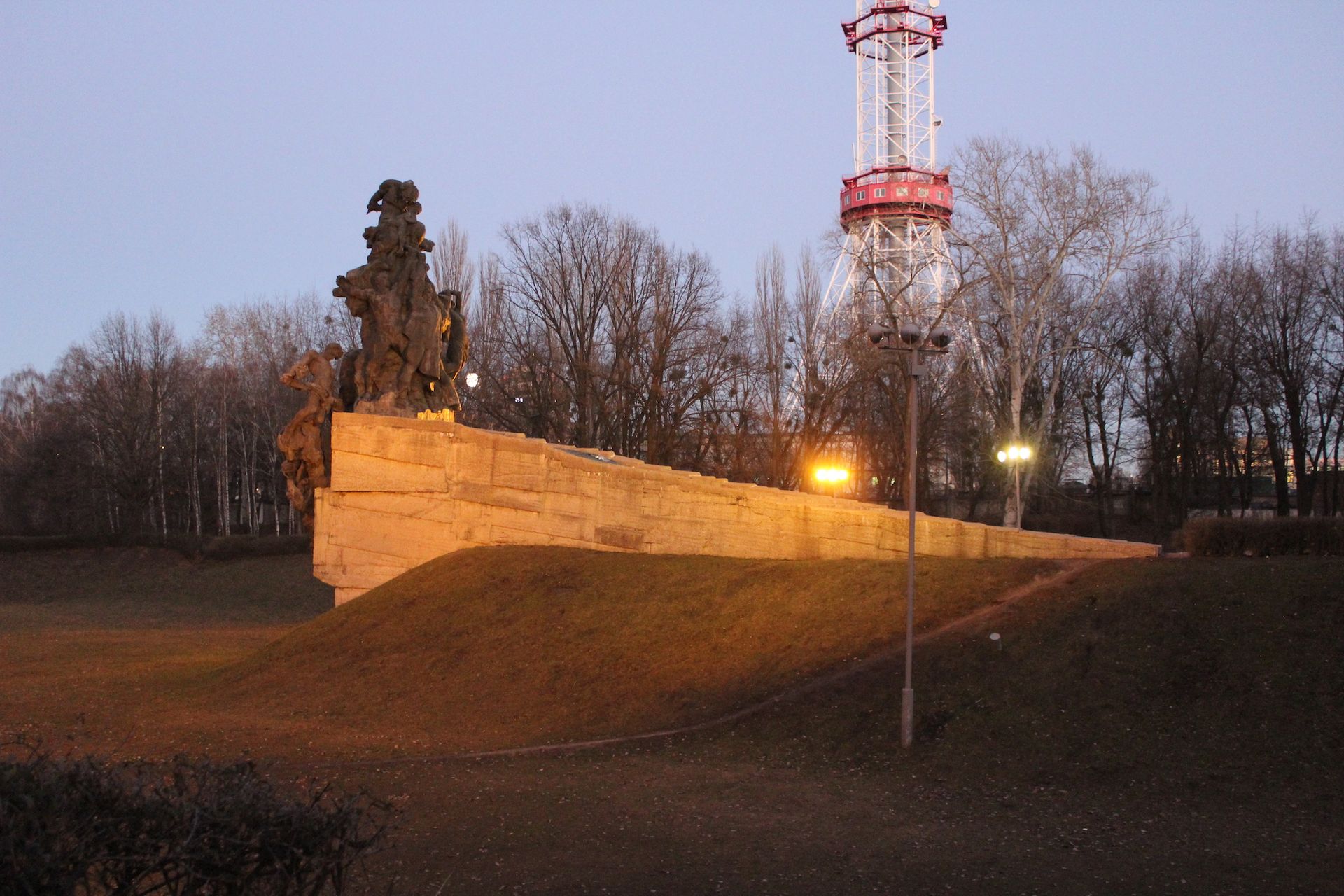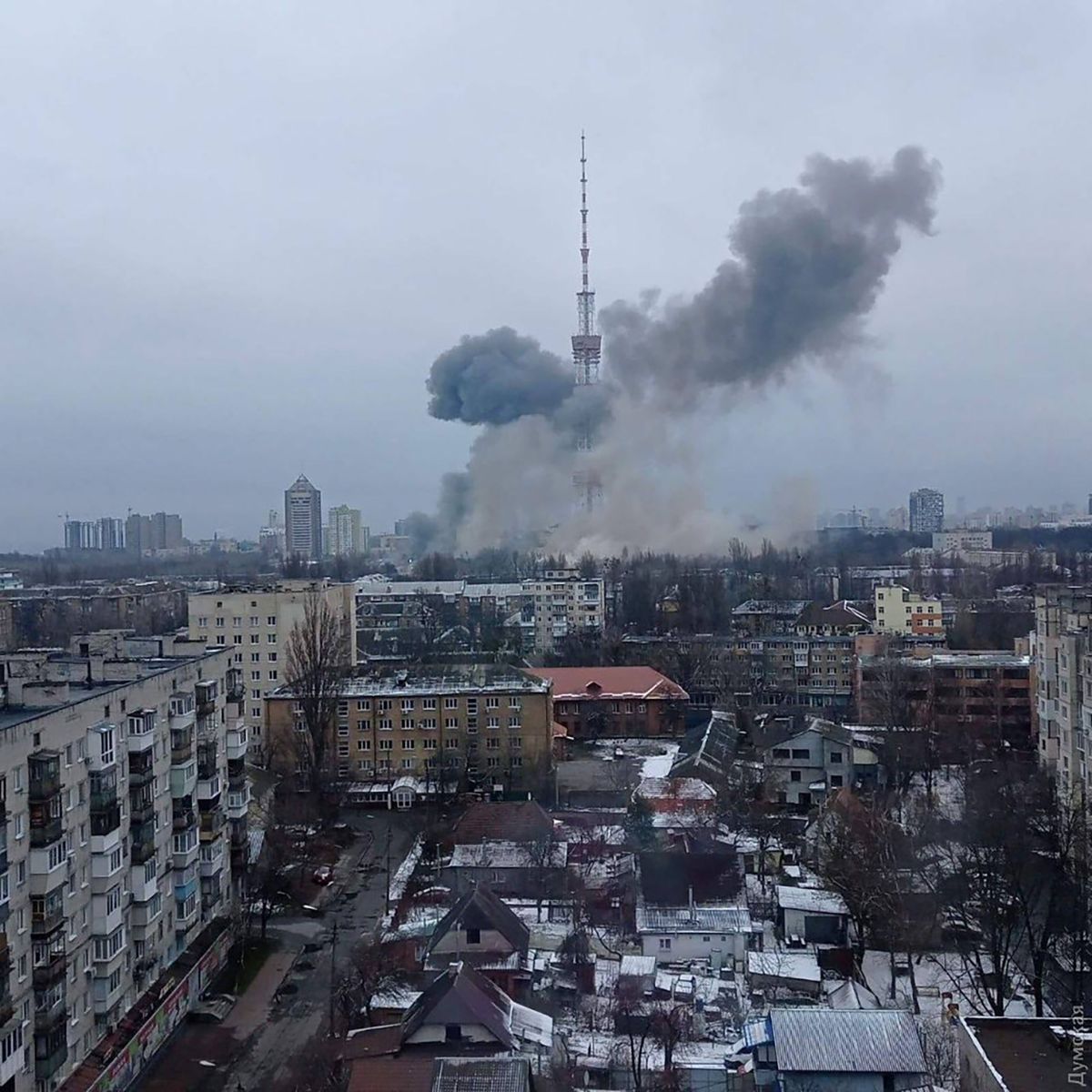Russian missiles hit the Babyn Yar Holocaust memorial site in Kyiv in an air strike apparently targeting a television broadcasting tower near the centre of the Ukrainian capital. Ukrainian authorities say five people were killed during the attack on 1 March.
Ukrainian president Volodomyr Zelensky’s chief of staff confirmed the attack on Twitter, saying a “powerful barrage” was under way at the site and called the Russian forces “barbarians”. A tweet from president Zelensky soon followed, “To the world: what is the point of saying «never again» for 80 years, if the world stays silent when a bomb drops on the same site of Babyn Yar? At least 5 killed. History repeating…”
Before launching the attack, Russia announced it would begin to target transmission facilities, according to the Associated Press. The tower and the nearby memorial are in a heavily populated urban area with multiple apartment complexes nearby.
“[Russian president Vladimir] Putin seeks to distort and manipulate the Holocaust to justify an illegal invasion of a sovereign democratic country is utterly abhorrent. It is symbolic that he starts attacking Kyiv by bombing the site of the Babyn Yar, the biggest of Nazi massacre,” said Natan Sharanksy, advisory board chair of the Babyn Yar Holocaust Memorial Center, in a statement.
A spokesperson for the memorial told the Times of Israel that the air strike had caused damage to buildings in the Jewish cemetery located in the Babyn Yar complex, although a monument to the victims of Nazism was not affected.

A monument to the victims of Nazism at the Babyn Yar memorial site in Kyiv prior to Tuesday's bombing Photo by AndriiDydiuk, via Wikimedia Commons
According to the centre’s website, Nazi forces killed between 70,000 and 100,000 people at Babyn Yar between 1941 and 1943, including almost the entire Jewish population of Kyiv. The non-governmental memorial centre is developing a new Holocaust museum complex commemorating the tragedy that is scheduled to open in 2025-26. The organisation said last December that the first phase of construction would be completed in 2022 with the opening of a museum building known as Kurgan.
A documentary by Ukrainian film-maker Sergei Loznitsa titled Babi Yar. Context, in part compiled from footage shot by amateur photographers among the occupying German soldiers and sourced from German, Russian and Ukrainian historical archives and private collections, premiered at the 2021 Cannes Film Festival where it won the special jury prize, the L’Oeil d’Or, for best documentary.


